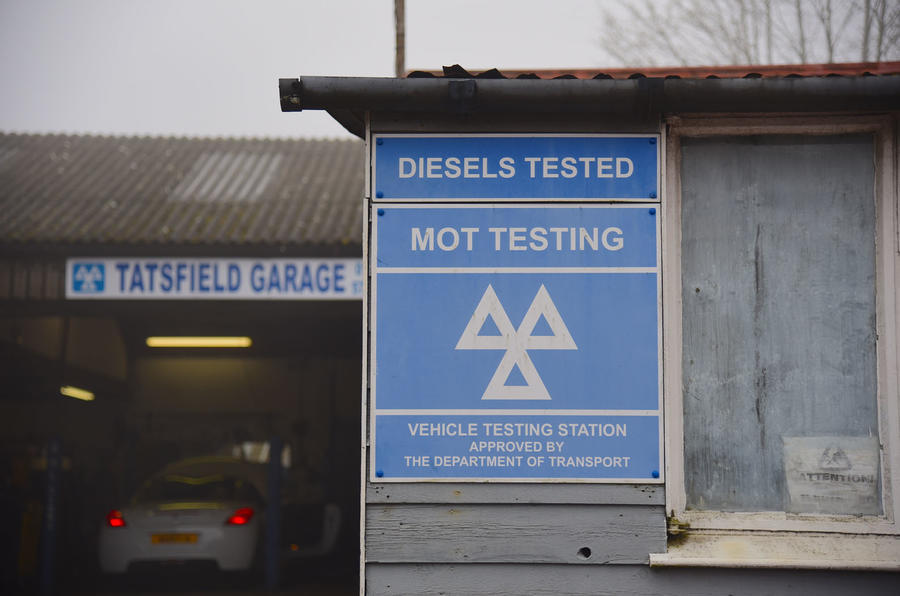MOT tests will remain unchanged following a year-long review that could have extended them to once every two years and a vehicle’s first test to four years, the government has today announced.
The proposal had been part of making the test “fit for the future”, with ministers claiming it would not impact road safety due to "major developments in vehicle technology" while also saving UK motorists a combined £100 million per year in fees.
According to government analysis, the number of casualties in car collisions due to "vehicle defects" has remained low.
This sparked heavy debate from motoring groups, such as the AA and the RAC, which claimed axing annual tests would “put lives at risk” because it would “likely increase the number of unroadworthy vehicles on our roads”.
Both motoring bodies warned against the extension of a first MOT to four years, saying that brakes and tyres – especially on high-mileage cars – often need repairs after three and that “one in 10 cars fail their first MOT”.
In response to the criticism, the government has climbed down from its proposals. Roads minister Guy Opperman said: “We have listened to drivers and industry, and keeping MOTs in their current form shows once again that we are on the side of motorists.”
As part of the announcement, the government also confirmed it would now look to “modernise” the test, including to make it fit for electric and autonomous vehicles.
Among the proposals are more effective tests for diesel particulate emissions, improving or altering MOTs for electric vehicles (such as battery tests) and the transfer of some larger zero-emission vans to more standard, car-style testing.
"Ensuring the MOT remains fit for the future is a key part of DVSA’s work, and getting ready for new technology will help keep Britain's roads safe,” said Neil Barlow, head of vehicle policy at Driver and Vehicle Standards Agency (DVSA).
The news was welcomed by the Society of Motor Manufacturers and Traders (SMMT), the industry group that represents thousands of members across the country.
SMMT chief Mike Hawes said: “Government and the automotive industry have worked together to ensure the UK has some of the world’s safest roads. The decision to retain the existing MOT system is the right one.
“With vehicle technology continuing to evolve at pace in terms of both safety and environmental performance, we will maintain this collaboration with government and other stakeholders so that the MOT continues to be fit for purpose, helping Britain improve what is already a strong road safety record.”









Join the debate
Add your comment
This is just populist politics, nothing more and nothing less, the beginning of trying to court the voters before the next General Election. They are completely ignoring the potential risks. Once again people will die because of Tory policy. It's not just a possibility, there WILL be more unsafe cars on the roads, with defects that would have been dealt with up to a year earlier, with the continuation of current MOT regulations.
Doesn't matter how well designed cars are, it doesn't stop people, through stupidity or just lack of care or knowledge, driving around with bald tyres, worn out brakes or, myriad other potential problems.
Strange to suggest that Electrification of vehicles resolves the problem?MOT's don't concern themselves with the mechanical functionality of an engine, just the safety of the vehicle.
The increased weight of electric cars actually puts much more stress on tyres, suspension etc, so means those components will need looking at more closely.
The sad fact is most drivers and many garages support tbe view that cars inevitably deteriorate and are hardly worth spending money on. The annual MOT is therfore vital to make sure that key safety items and emissins equipment are idependently checked. As the AA says 3 years is when barke wear can become an issue.
Personally I maintain my cars all year round and see it as black mark against me if a car fails the MOT. The newst one came from a car supermerket and they do the oil change and the MOT, Everything else i do myself (using the manufactures full service recommendations) As this car approaches 5 years they are constantly suggesting its time to tarde it in for a newer one to avoid possible break downs and wear - there was silence on the phone when I said my oldest car is still running fine at 18 years old (I have just done 220 mile to Cambridge this afernoon at 38 mpg and just under 60 mpg average speed)